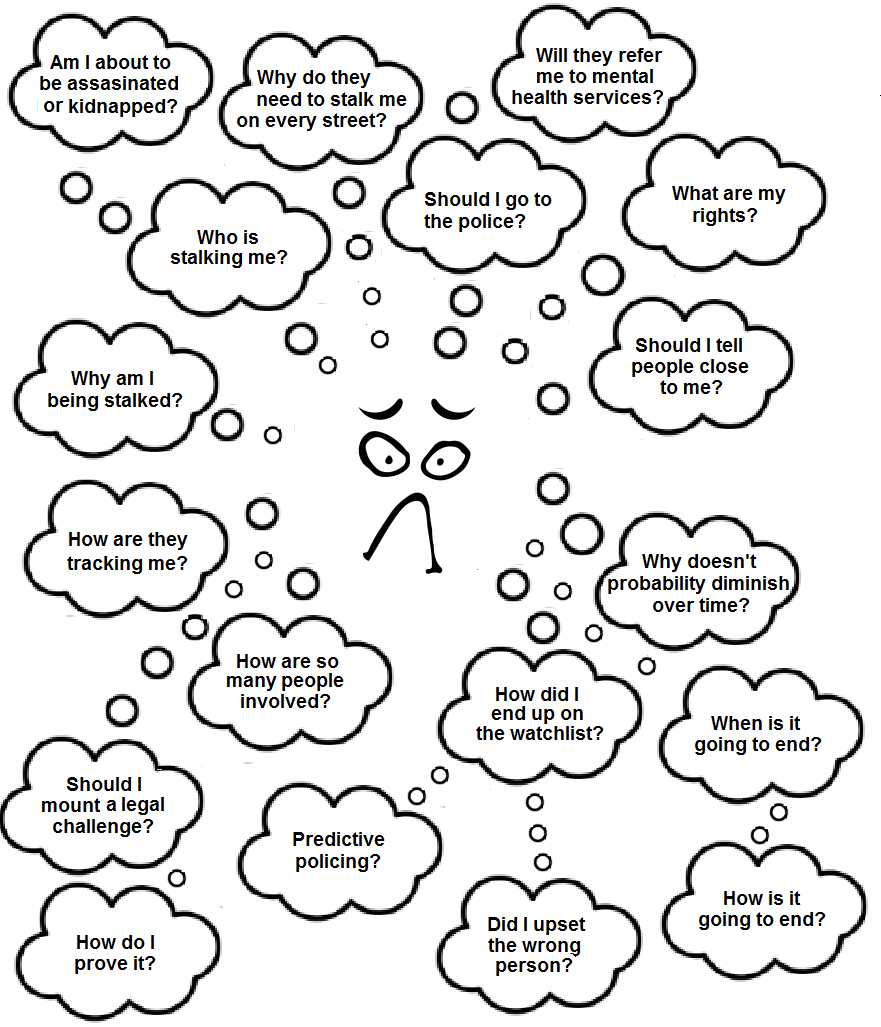|
Confusion phase and intense and chronic stress
Primary tracking via the mobile phone
Once the target knows they are under surveillance, they will become very confused about
what is happening to them. The specific reason why they are placed on a watchlist is
never explained or justified.

Fig 13. So many unanswered questions and stress imposed upon the target's life
The target may seriously consider that they are in danger of being kidnapped or
assassinated, considering the amount of resources being devoted to stalking them.
They will also wonder if they should go to the police or if this will make it worse due to
most people reporting that they will try to refer the target to mental health services, rather
than admit to gangstalking. They will also wonder if they should attempt to explain it/prove
it to the people around them (or if they will then just be accused of paranoia or delusion).
They may also wonder if they should mount a legal challenge, and if so how they might go about
collecting the evidence necessary?
In addition, the target will wonder why does the probability that someone is doing
something wrong not diminish over time? Also, why, if they have tracking information, do
they need to stalk that individual permanently on every street?
Initially, they will not be believed by people close to them and so the target will lack support
from people close to them. These people are likely, instead, to believe that due to the
unlikely nature of being stalked so intensively by so many people, and the perceived
strange and erratic behavior of the individual, that they may be suffering from paranoia or
delusion. They may say things to the target such as: 'I hope you get the help you need'.
This lack of support may add to the stress.
|
|

